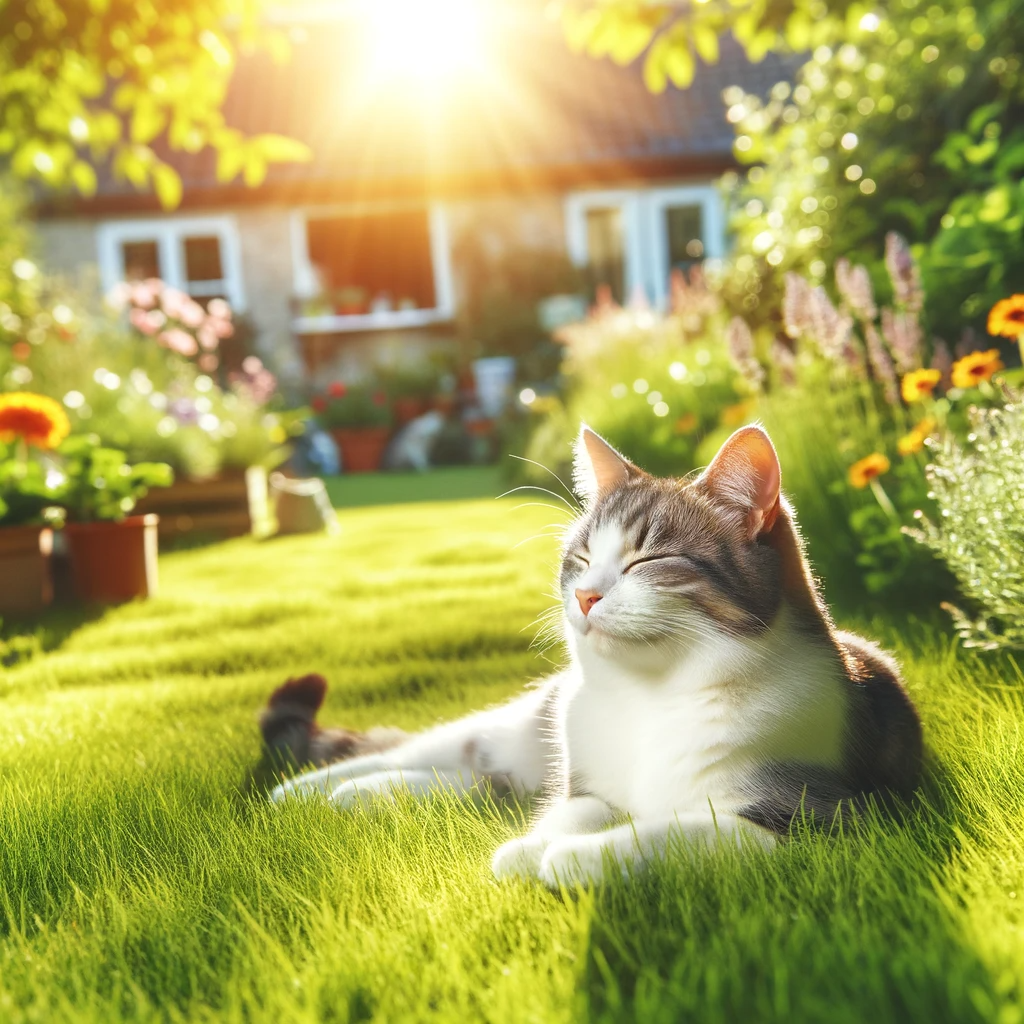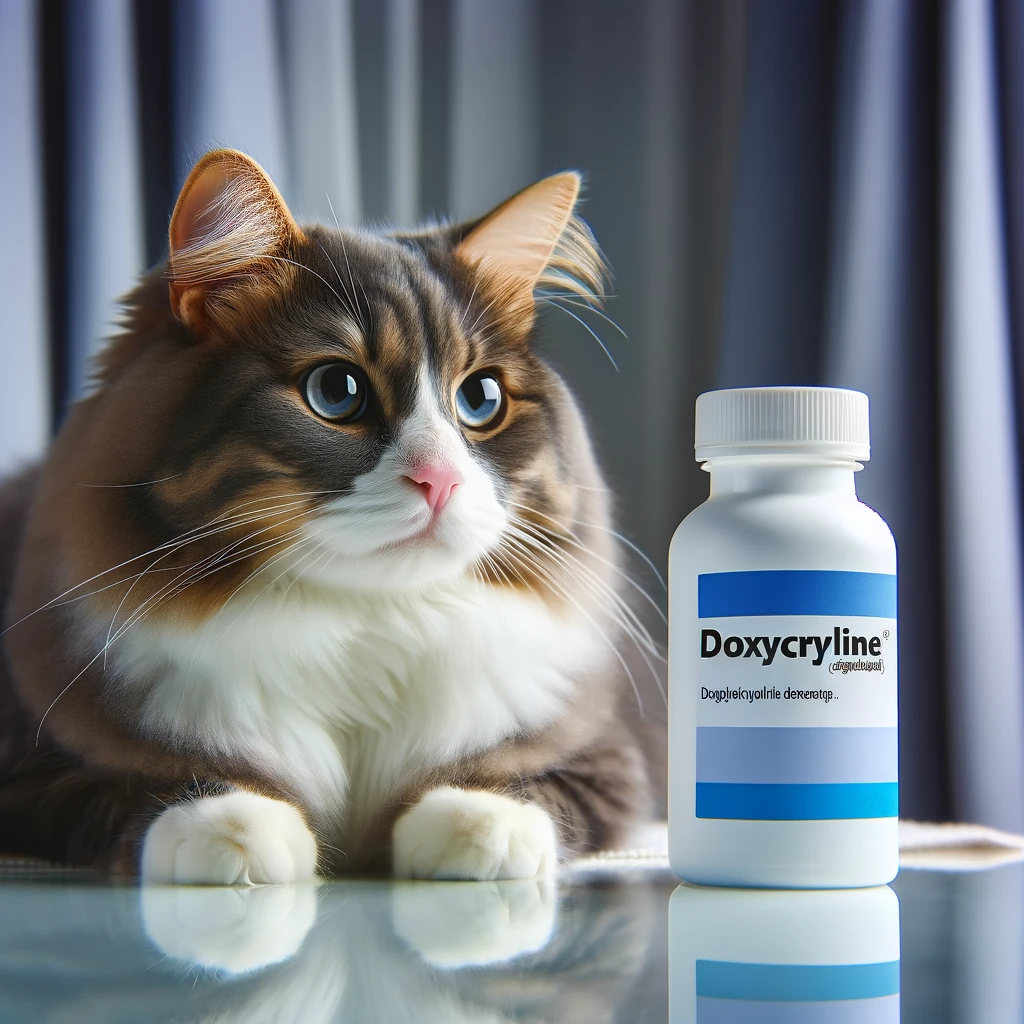Caring for your feline friend goes beyond providing a cozy nap spot and the occasional treat. Cat wellbeing is a multifaceted topic, encompassing everything from nutrition and exercise to mental health and preventative care. You’re about to dive into the essentials of keeping your cat happy, healthy, and purring for years to come.
Understanding your cat’s needs can seem like deciphering a mysterious language, but don’t worry, you’re not alone. We’ll explore the signs of a contented cat and the red flags that signals a trip to the vet might be needed. Stick around to uncover the secrets to optimal cat wellbeing and ensure your furry companion leads the best life possible.
The Importance of Cat Wellbeing
When you’re a dedicated catlover, seeing your feline friend thrive isn’t just a wish, it’s a priority. Cat wellbeing goes far beyond the basics of food and shelter; it encompasses a broad spectrum of care that ensures your cat leads a truly blissful life. As a cat carer, it’s critical to understand that while cats might not be sapient in the human sense, their needs are complex and deeply rooted in their natural instincts.
Cat Healthcare is at the forefront of your pet’s wellbeing. Just like humans, cats require regular check-ups to safeguard against illnesses and to manage any conditions that might arise. Preventative care is key—you wouldn’t want to overlook symptoms until it’s too late. Whether it’s updating vaccinations, managing a cat allergy, or getting advice on Cat Care, your vet is an invaluable resource.
But how do you take care of a cat beyond the vet’s office? It starts at home:
- Cat Food: Nutrition is vital. Invest in high-quality cat food that provides all the necessary nutrients. Consider your cat’s age, weight, and health conditions when choosing the best diet.
- Cat Toys and Exercise: Keeping your cat active isn’t just about physical health. It also stimulates their mind, curbing boredom and destructive behaviour. From simple balls to interactive toys, keep your cat engaged.
- Mental Health: Cats need a stimulating environment to explore and express their natural behaviours. Cat trees, scratching posts, and safe outdoor access can all contribute to mental stimulation.
Remember, understanding your feline friend’s needs isn’t always straightforward. Look out for changes in behaviour that may signal discomfort or distress. Seeking cat care advice from books or reputable online resources can help you stay informed. As a responsible cat owner, you’re always learning and adapting to ensure your pet’s happiness.
Understanding Your Cat’s Needs
Providing a Safe Environment
Creating a safe haven for your cat is paramount to their wellbeing. Cats are creatures of comfort and security; hence, your home should be the safest place they know. As a devoted cat carer, here’s what you can do:
- Ensure windows and balconies are secure to prevent falls.
- Keep hazardous chemicals and plants out of paw’s reach.
- Provide hideaways and perches where your cat can retreat when stressed.
Remember, a safe environment also means regular pest control to prevent flea and tick infestations, crucial for both your cat’s comfort and health.
Meeting Their Nutritional Needs
When it comes to feeding your feline friend, cat food isn’t just about filling the bowl. It’s crucial to offer balanced nutrition tailored to their life stage. Here’s what to consider:
- Choose high-quality cat food that meets the AAFCO standards.
- Be mindful of the right balance between dry kibble and wet food for hydration.
- Consult with your vet about any special dietary needs, especially if your cat has a health condition.
By encompassing cat healthcare in their diet, you’re not just satisfying their hunger, you’re bolstering their health. Ingenuine attention to diet plays a key role in preventing issues like obesity and cat allergy.
Cat care advice often underlines the importance of nutritional variety but make sure any changes to diet are gradual to avoid digestive upset. Indulge your cat with treats, but do so sparingly – their health is in your hands.
To keep track of your cat’s health and nutritional needs, maintain regular check-ups with the vet, who can provide personalized cat carer tips. You’re not just an owner; you’re a catlover committed to the overall happiness and wellness of your furry companion.
Mental Stimulation for Happy Cats
As a devoted catlover, ensuring the mental well-being of your feline friend is as crucial as their physical health. Cats are intelligent creatures, and without proper mental stimulation, they can become bored, which may lead to unwanted behaviours. So let’s explore how you can keep your cat’s mind engaged and sharp.
Interactive Toys and Games
Interactive cat toys are a brilliant way to enrich your pet’s day-to-day life. These toys stimulate your cat’s hunting instincts, keeping them both physically active and mentally challenged. Here are some top picks for interactive toys that can help prevent boredom:
- Laser pointers: Cats love to chase these bright dots. Remember, though, to occasionally let them ‘catch’ a physical toy at the end of the game to prevent frustration.
- Feather wands: Mimicking the movement of prey, these can captivate your cat’s attention for long periods.
- Puzzle feeders: Combine playtime with treat time. Puzzle feeders require your cat to solve a problem to earn their food, which can be highly engaging and rewarding.
- Robotic mice: These modern toys scurry around just like real mice and can provide hours of entertainment.
When choosing toys, consider variety to keep your cat’s interest peaked. Even simple DIY toys, such as a crumpled paper ball or a box with holes for pawing at hidden treats, can be highly effective.
Enriching Their Environment
An enriched environment is key to a cat’s mental health. It prevents stress and promotes a range of natural behaviours. Improve your cat’s environment with these strategies:
- Climbing Structures: Cats love to climb. Install shelves or cat trees, especially near windows, to offer a good view and a feeling of security.
- Scratching Posts: These are essential for your cat’s mental and physical well-being. They aid in keeping your cat’s claws in shape and provide a form of stress relief.
- Safe Outdoor Access: If possible, allow your cat controlled access to the outdoors. A cat-proofed balcony or a secure cat run can provide a wealth of sensory stimulation.
- Window Perches: A comfortable perch by the window gives your cat a safe vantage point to observe the world outside, often for hours on end.
Regularly introduce new elements to your cat’s environment to keep it exciting and stimulating. However, ensure any changes are gradual to avoid causing any anxiety. Remember, your cat’s environment should be a haven that provides both physical safety and mental stimulation.
Interactive toys can provide hours of fun and mental stimulation for your cats.
Maintaining a Healthy Lifestyle
Ensuring your cat enjoys a healthy lifestyle means staying diligent with veterinary care, nutrition, and exercise. Adopting the right habits can dramatically improve their quality of life and longevity. Here’s how you can maintain a healthy lifestyle for your feline friend.
Regular Vet Check-ups
Regular vet check-ups are a cornerstone of cat healthcare. Just as humans require routine health assessments, your cat also needs periodic examinations to stay in optimal health. Annual check-ups can catch early signs of illness, making treatments more effective and less costly.
During these visits, your cat will receive necessary vaccinations and will be screened for common feline illnesses. Stay proactive by scheduling these appointments in advance; remember, early detection can be the key to managing health conditions more effectively.
Exercise and Playtime
Cats are naturally playful animals and require regular exercise to stay fit and healthy. Exercise not only keeps your cat in good physical shape but also provides much-needed mental stimulation. Here are some tips to ensure your cat is getting adequate playtime:
- Invest in cat toys that engage their predatory instincts, such as laser pointers, feather wands, and interactive mice.
- Schedule dedicated play sessions each day. About 10-15 minutes of focused play can make a world of difference in your cat’s mood and health.
- Consider cat carer tips like using puzzle feeders that challenge your cat to work for their cat food—this encourages natural hunting behavior and provides mental stimulation.
- For safer outdoor experiences, harness training your cat can give them the exercise they need while keeping them secure.
By integrating these care strategies into your daily routine, you’ll help ensure your cat thrives. Keep an eye out for signs of increased energy and a more engaged attitude—a clear indicator that your efforts are paying off.
Creating a fulfilling environment and routine for your cat will require patience and commitment. Remember, your role as a cat carer goes beyond providing basic needs; it’s about enriching their life in every possible way. Seek cat care advice from reputable sources if you’re unsure about how to proceed, and always be attentive to the unique needs and preferences of your beloved pet.
Grooming and Hygiene
Proper grooming and hygiene are fundamental components of cat care advice. As a devoted catlover, it’s essential to regularly brush your furry friend’s coat to prevent matting, reduce shedding, and help minimize potential cat allergy triggers. For short-haired breeds, brushing once a week may suffice, while long-haired cats often require daily attention.
Cat Healthcare best practices include maintaining your cat’s nails trimmed to avoid overgrowth that can lead to discomfort or even injury. Grooming sessions are also the perfect time to check for any irregularities like bumps, cuts, or skin infections, which should prompt a visit to the vet.
Dental Hygiene Is Key
Keeping an eye on dental health is crucial. Plaque and tartar buildup can lead to serious health issues. It’s advised to brush your cat’s teeth regularly and provide dental hygiene products like treats or toys designed to clean teeth as they chew. If you’re unsure about how to take care of a cat’s dental needs, seek professional cat care advice.
Battling Parasites
Cat Carer tips include prevention and treatment of pests like fleas, ticks, and worms. These parasites are not only a nuisance but can also harbor diseases. Use vet-recommended flea treatments and schedule regular deworming sessions. Inspect your cat’s coat during grooming for any signs of parasites.
Cleanliness Goes Beyond Fur
Don’t overlook the importance of a clean living environment for your cat. Regularly cleaning the litter box helps prevent the spread of bacteria and odors. Also, ensure that your cat’s bedding, toys, and feeding area are kept clean to support overall health.
By integrating these hygiene habits into your routine, you’ll not only foster a pleasant living space but also support the overall wellbeing of your cat. Remember, a well-groomed cat is typically a healthier and happier companion. Keep an eye out for new and effective grooming tools and cat toys that can make the process easier and more enjoyable for you both.
Conclusion
Ensuring your cat’s wellbeing is a multifaceted task that requires your attention and dedication. You’ve learned that regular vet visits, sufficient exercise, and consistent grooming are not just beneficial but essential for your feline friend’s health. Remember, it’s the small habits, like brushing their coat and maintaining their dental hygiene, that make a big difference. Keep their living space clean and stay vigilant for any signs of health issues. By doing so, you’ll not only enhance your cat’s quality of life but also strengthen the bond you share. Your commitment to their care is the key to a happy, healthy companion.
Frequently Asked Questions
What are the key aspects of maintaining a cat’s wellbeing?
A cat’s wellbeing relies on regular vet check-ups, adequate exercise, playtime, grooming, dental hygiene, and a clean living environment. Integrating these aspects into their routine can lead to a healthier lifestyle for cats.
How often should cats visit the vet?
Cats should have regular vet check-ups at least once a year for general health assessments and to stay up-to-date with vaccinations. Frequent visits may be needed for senior cats or those with health issues.
What grooming tasks are essential for cat hygiene?
Essential grooming tasks for cats include brushing their coat to prevent mats, trimming their nails to avoid overgrowth, and routinely checking for skin irregularities. Dental care is also crucial in maintaining their overall hygiene.
Why is dental care important for cats?
Dental care is important because poor dental health can lead to significant health issues in cats, including infections and diseases that can affect their organs. Brushing a cat’s teeth regularly can prevent these problems.
How can I ensure cleanliness in my cat’s environment?
Ensure cleanliness in your cat’s environment by regularly cleaning their bedding, litter box, and any areas they frequently use. This helps prevent the spread of parasites and diseases and contributes to the cat’s overall wellbeing.





